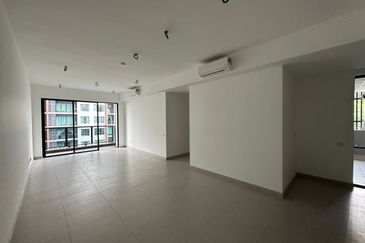KUALA LUMPUR (March 3): Despite economic headwinds, both Malaysian banks and property developers are resilient to possible shifts in sentiment and falling property prices, according to Moody's Investors Service.
In a statement Tuesday, a Moody’s senior vice president Stephen Schwartz said that after several years of rapid gains in residential property prices, macroeconomic conditions in Malaysia were turning less positive for the property market.
“Nevertheless, we anticipate a soft landing for property prices, supported by robust, albeit decelerating GDP growth, and stable
housing demand from middle-income households.
“In such a scenario, Malaysian developers and banks should be resilient to downward property price pressures," said Schwartz.
Moody's analysis was contained in its just-published report "Malaysia's Property Sector Risks Are Manageable for Banks and Developers".
Moody’s said that Malaysia (A3 positive) had seen a rapid rise in residential property prices, of more than 40% in real terms since early 2009, against a backdrop of increased urbanisation, rising living standards and a long period of low interest rates.
The rating agency said such a price increase had generally outpaced that of Malaysia's neighbors.
“But commodity price weakness and China's ongoing economic slowdown are creating economic headwinds.
“Moody's nevertheless expects Malaysia's GDP growth to decelerate to a still-solid 4.5%-5.0% in 2015, from 5.8% in 2014,” it said.
Moody’s however said previously implemented cooling measures, a forthcoming new goods and services tax, and tighter lending conditions, would all add to downward pressure on housing prices.
Meanwhile, a Moody’s vice president senior credit officer and co-author of the report Eugene Tarzimanov said while delinquencies on mortgages and construction-related loans will likely increase from their current multi-year lows, Malaysian banks had robust capital buffers and healthy pre-provision profitability.
“Also, the credit quality of property-related loans is generally good, supported by prudent loan-to-value ratios and low unemployment rates.
“As such, Malaysian banks are well positioned to weather a soft landing in property prices. However, mortgages with high loan-to-value ratios and loans to overleveraged households and developers are at greater risk of payment slippage," said Tarzimanov.
The report said middle-income households will also be key to Malaysia's largest listed property developers' resilience as property price growth slows.
It said while sales volumes would moderate, they will remain supported by developers' product offerings that are targeted at middle-income households.
Moody’s said overseas projects would also buffer developers from the domestic deceleration in price growth.
“However, Moody's expects developers focused on residential projects located in urban states such as Johor, Kuala Lumpur, Selangor and Penang, will be more challenged,” it said.
TOP PICKS BY EDGEPROP

Taman Tasik Semenyih (Lake Residence)
Semenyih, Selangor

Taman Tasik Semenyih (Lake Residence)
Semenyih, Selangor

Suadamai, Bandar Tun Hussein Onn
Cheras, Selangor

Suadamai, Bandar Tun Hussein Onn
Cheras, Selangor

Bandar Bukit Tinggi
Bandar Botanic/Bandar Bukit Tinggi, Selangor

Pangsapuri Akasia, Bandar Botanic
Bandar Botanic/Bandar Bukit Tinggi, Selangor

Pangsapuri Akasia, Bandar Botanic
Bandar Botanic/Bandar Bukit Tinggi, Selangor

Astrea Residence (Residensi Astrea)
Mont Kiara, Kuala Lumpur

















